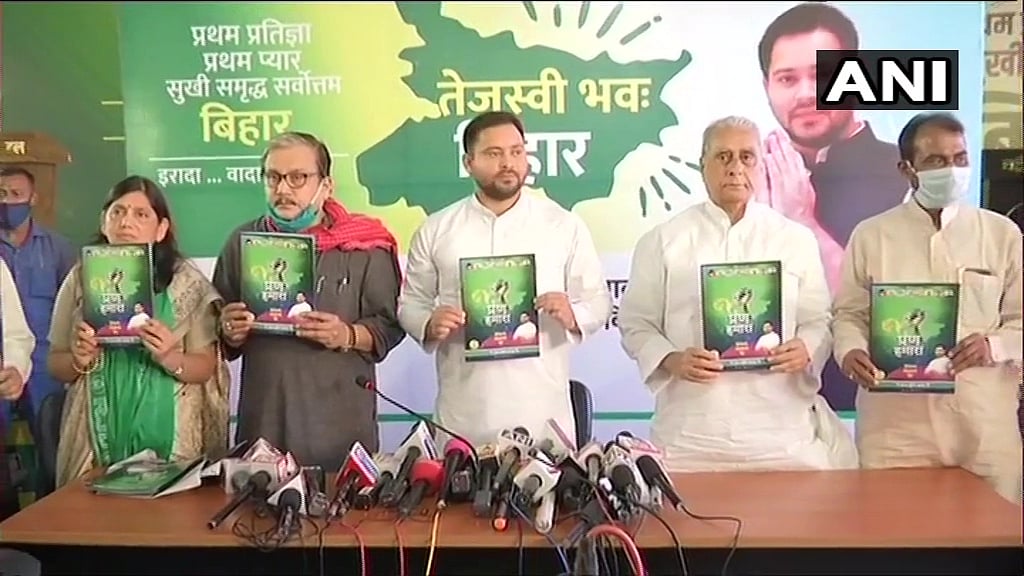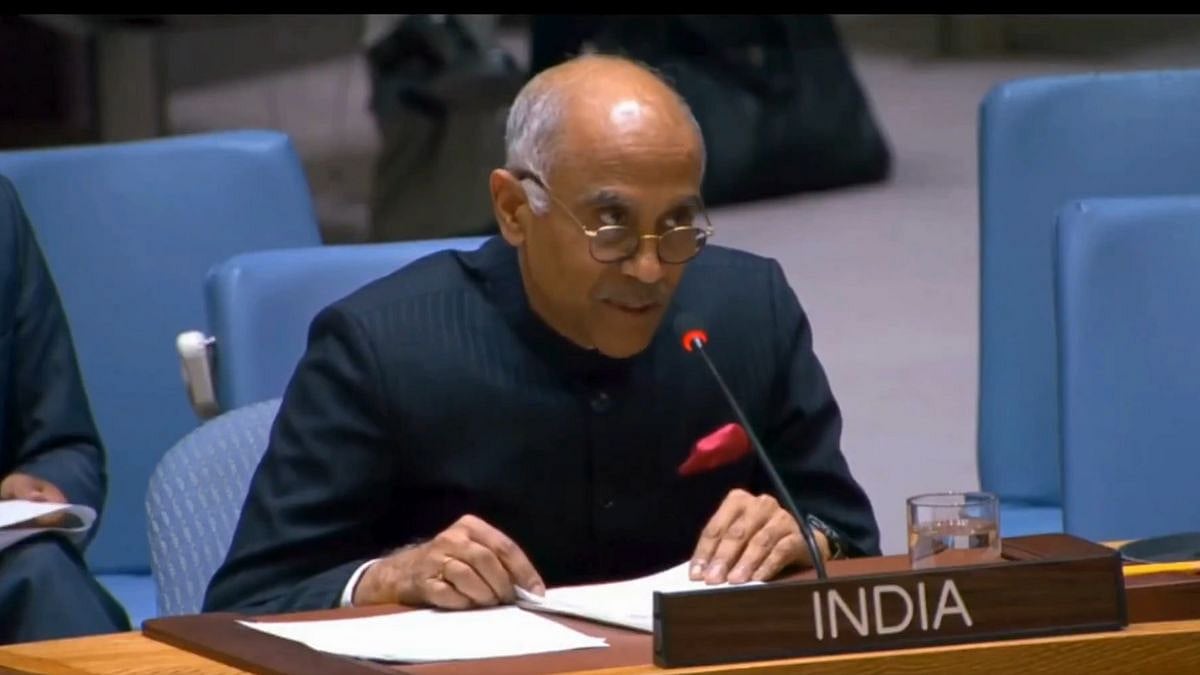The Rashtriya Janata Dal (RJD)-led Opposition in Bihar has stolen a march over the ruling National Democratic Alliance (NDA) by being the first to release its election manifesto. The document leaves little doubt about whose promises it carries—the large photograph of Tejashwi Yadav, the chief ministerial candidate, dominates its cover.
The punchline, “Sampoorna Bihar ka, Sampoorna Parivartan—Tejashwi Pratigya, Tejashwi Pran” (Tejashwi’s pledge, Tejashwi’s vow—for total transformation of Bihar), confirms that this is less a coalition document and more a personal political pitch. Although the Congress is part of the Grand Alliance, the manifesto is unmistakably an RJD production.
Its single-point aim seems to be winning the election by any means, even if that means making promises that defy logic, economics, and experience. Of course, exaggeration is no monopoly of any one party. The BJP and its allies have long set the standard for sky-high claims and unfulfilled guarantees. But the RJD’s effort goes several steps further—from ambitious to absurd.
A quick reading shows that the intention is not to implement the promises but to seduce the electorate with fantasy. Consider the headline pledge: a government job for one person in every family. This came a day after Amazon, one of the world’s largest employers, announced it was laying off 30,000 workers made redundant by artificial intelligence.
When even global corporations are cutting back, how can a state government that already struggles to pay salaries create lakhs of new jobs overnight? A government’s job is not to provide employment but to enable employment by fostering an environment of investment, entrepreneurship, and skill development.
Equally impractical is the promise to make all contractual and outsourced workers permanent and to grant government employee status to Jeevika community mobilisers under the Bihar Rural Livelihoods Project.
Jeevika is one of Bihar’s few success stories, having empowered lakhs of women through self-help groups. Turning its facilitators into salaried bureaucrats would strangle the very spirit of community participation that made it work.
The manifesto’s offer of Rs 30,000 fixed salaries, interest-free loans, and monthly allowances to Jeevika cadres may sound generous, but it would bankrupt the project—and the exchequer. It is not without reason that Bihar continues to languish at the bottom of India’s development pyramid. The state’s problem is not lack of resources or manpower—it is the absence of vision.
A truly forward-looking party would seek to harness Bihar’s fertile land, industrious labour force, and entrepreneurial energy to transform the economy, not drown it in reckless populism. In the end, the RJD’s manifesto is a political gamble. Whether it pays off or not, one thing is certain: Bihar deserves more than promises that everyone knows will never be kept.









